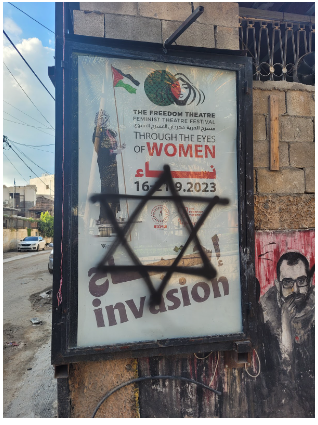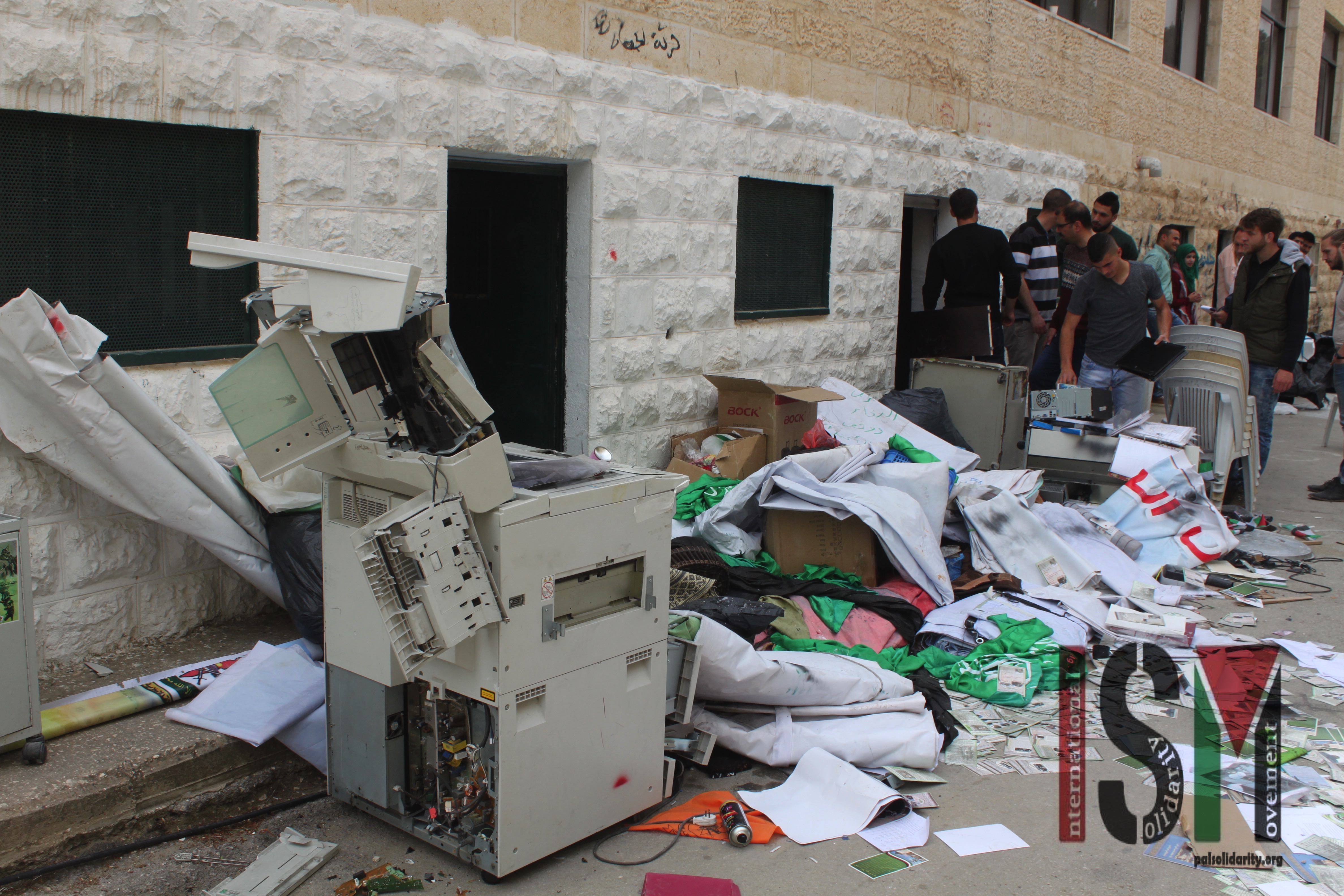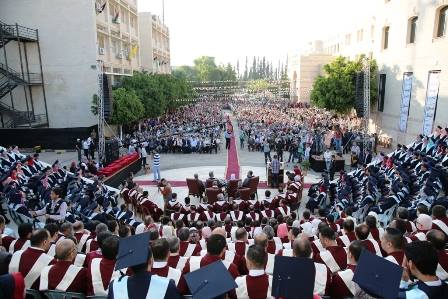Tag: Raids
-
Jenin: The Other Gaza
17 December 2023 | International Solidarity Movement | Jenin On Wednesday, December 13, I received a message from a fellow actress of the Freedom Theatre informing me that the occupation forces had arrested without charge Mustafa Sheta, theatre director and general manager, Ahmed Tobasi, artistic director, as well as Jamal Abu Joas, acting coach. The…
-
University rooms destroyed in early morning raid by Israeli forces
5th of March 2016 | International Solidarity Movement, Ramallah team | East Jerusalem, occupied Palestine In the early hours of Tuesday, 5th April, around 3am, an armed group of Israeli soldiers stormed the campus of Al Quds university in the area of Abu Dis, part of East Jerusalem. The soldiers terrorised security guards on duty and forcefully…
-
Al-Kadoorie: the only university in the world with a military training zone inside its campus
November 18th 2015 | International Solidarity Movement, Huwara Team | Tulkarm, occupied Palestine On the 17th of November, in a meeting in the University of Al Kadoorie, in the city of Tulkarm, the institution’s Director of Public Relations, Mr. Azmi Saleh, and a group of students described the recent human rights violations that the Israeli…



